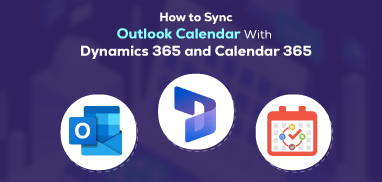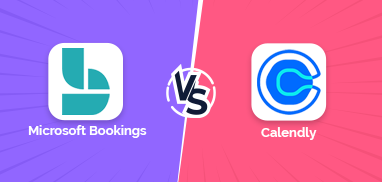Location-based marketing or geolocation marketing is the key to building a strong brand presence among your local audience or audience in target areas.
So, without any further ado, let’s understand in detail what location-based marketing actually is. Later in the blog, you’ll also get to know about types of location-based marketing, its benefits, and general tips.
Overview of Location-Based Marketing
Location-based marketing is the promotion of your business to your customers based on their geographic locations. It can incorporate both online and offline marketing strategies to strengthen your bonding with nearby customers or customers in a particular high-grossing area. As it often helps target the audience on the basis of their geolocations, people at times refer to it as ‘Geolocation Marketing’ also.
Types of Location-Based Marketing
There are different types of location-based marketing that you can use to target your local audience.
➤ IP Address Marketing – Any device – computer, laptop, or mobile connected to the Internet has an IP address. IP address marketing is the use of information about the physical locations of your target audience to market your business by using relevant ads. It also lets you customize your messages as per physical locations and increase your brand awareness among the target audience.
➤ GPS Marketing – GPS-based marketing is leveraging location data that businesses derive from GPS signals to fine-tune their ads, messages, and other promotional content.
➤ Geofencing – Setting up a virtual location or radius to facilitate marketing to people within that area is called geofencing. You can use a good geofence tracker to implement these locations. You can also consider geofences equivalent to territories.
➤ Proximity Marketing – Targeting your promotional and marketing campaigns for people within a geofence already set up is called proximity marketing.
➤ Beacon Marketing – Beacon marketing involves using a physical device – a beacon within the premises of a business to market to people within the range of that beacon.
Benefits of Location-Based Marketing
Helps Generate More Sales
The final goal of any advertising campaign is to attract more and more customers. Through location-based marketing, you can advertise your business to those customers who show interest in your product(s) or service(s).
For instance, if you are a local salon owner, your customers are right within your city. Even among them, people in your vicinity are your potential customers. So, creating Facebook ads to display to only the people within your locality – or specific zip code can help get more customers.
Simplifies Segmentation
Segmentation is a marketing activity that involves segmenting customers on the basis of shared interests, activities, or attributes. Using geo locations to segment customers can be a great idea. If you can find out the location of a particular person at any time, you can send a message customized as per that specific location to make it more relevant and engaging.
This way, geolocation marketing also helps you target customers in a particular location in a better way.
Gives Better Returns
Collecting, analyzing, and using location data can go a long way towards engaging customers through targeted promotions and gives better returns on the amount you invest in advertising.
Tips for Location-Based Marketing
Without a well-thought-out location-based marketing strategy, making your location-based marketing campaign success can be tough.
If you are also looking to use location-based marketing, you can follow a few general tips to make it result-driven.
➤ Local SEO
Optimize your site for the local audience. Local SEO means the local organic traffic generated from Google My Business listing for consumers looking for businesses in their vicinity that offer some particular product(s)/service(s).
To improve local SEO:
✅ Create location-specific content on your site,
✅ Encourage five-star reviews from your customers,
✅ Optimize Google My Business listing.
The more the organic traffic the better are your growth prospects. Hence, always ensure that you invest your efforts and time in enhancing local SEO.
➤ Pay-Per-Click Advertising
Combine your geolocation marketing with your Pay-Per-Click (PPC) advertising to filter the customers who can access your paid ads. Using geolocation, you can tailor your ads as per the audience within your target region and save the money you would otherwise shell out on wasted clicks. Eventually, you can make your PPC campaigns stronger, better, more engaging, and productive.
➤ Use Location Tags in Social Media
Social media platforms like Facebook, Instagram, and Twitter let you use location tags in posts. Avail these location tags to inform the audience about your business location. Incorporating location tags in social media posts across various platforms will increase the organic impressions with the audience searching for more photos as per the geolocation.
You can also use hashtags to get more people in the vicinity to discover your business easily.
➤ Plot CRM Contacts on a Map/Visualize CRM Contacts
Handling everything from within CRM can be tedious at times. Therefore, plotting all your CRM contacts on a map can be helpful for better visualization. Accordingly, you can form strategies to target high-grossing areas more efficiently.
There are a number of mapping tools available out there in the market based on your CRM. You can pick one that suits your requirements and set off with location-based marketing.
Ready to Adopt Geolocation Marketing
Now that you know how location-based marketing can help enhance your outreach and increase sales, you should adopt geolocation marketing right away.
If you are looking for a mapping tool to help you visualize your contacts, our Dynamics 365 Map integration for Microsoft Dynamics can help you out.
To know more about its features or integrate it, contact us at [email protected] and our sales team will revert to you within 24 hours.
All product and company names are trademarks™, registered® or copyright© trademarks of their respective holders. Use of them does not imply any affiliation with or endorsement by them.





